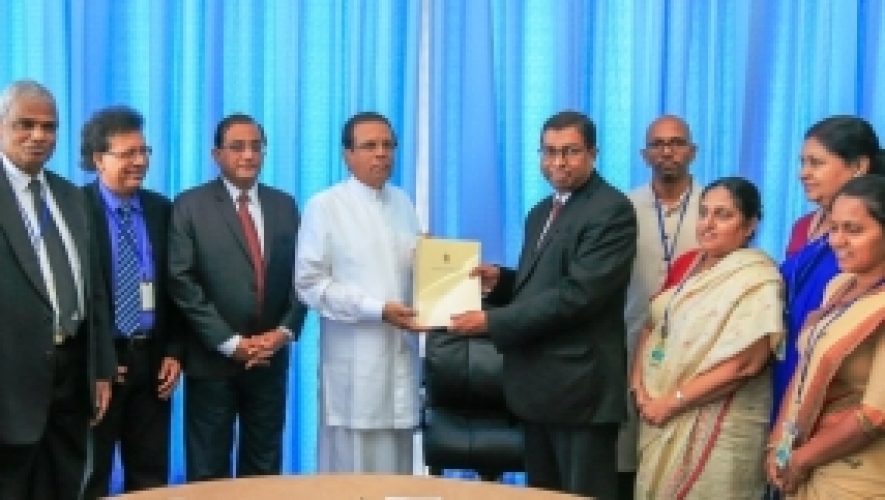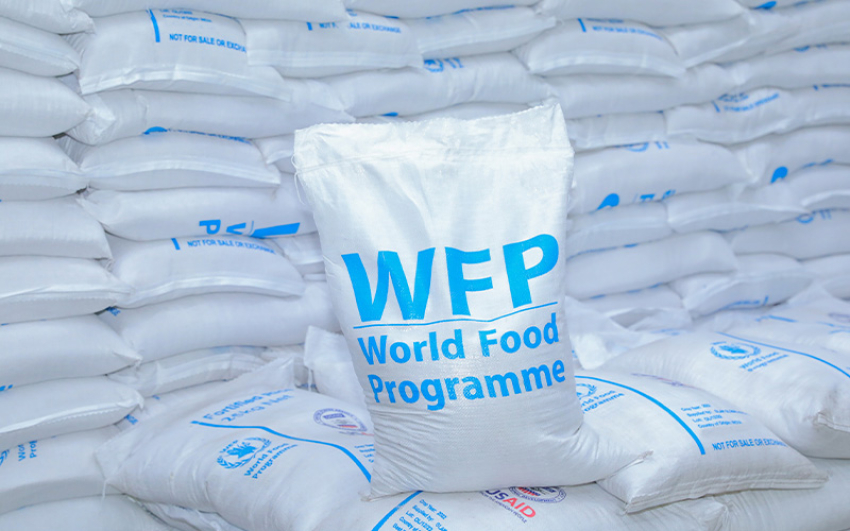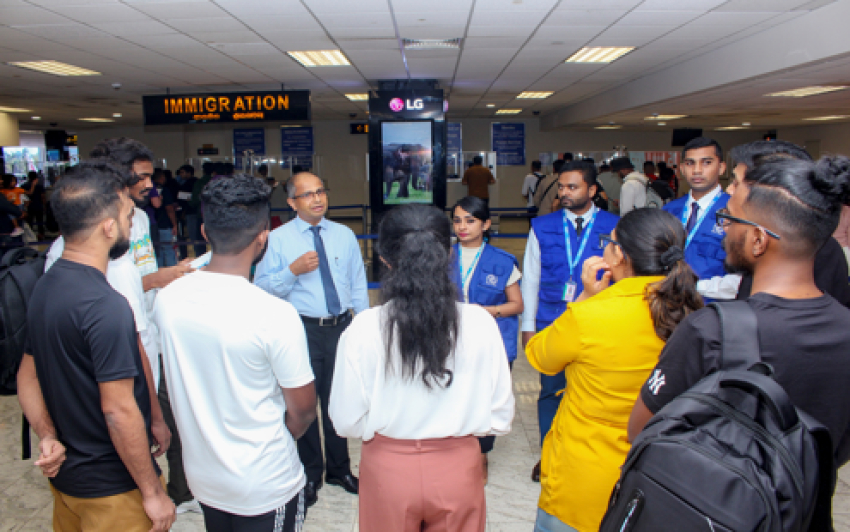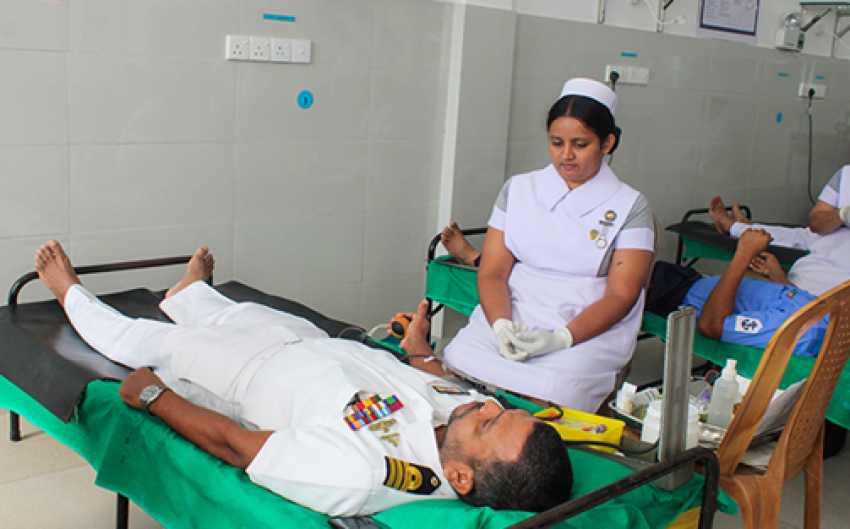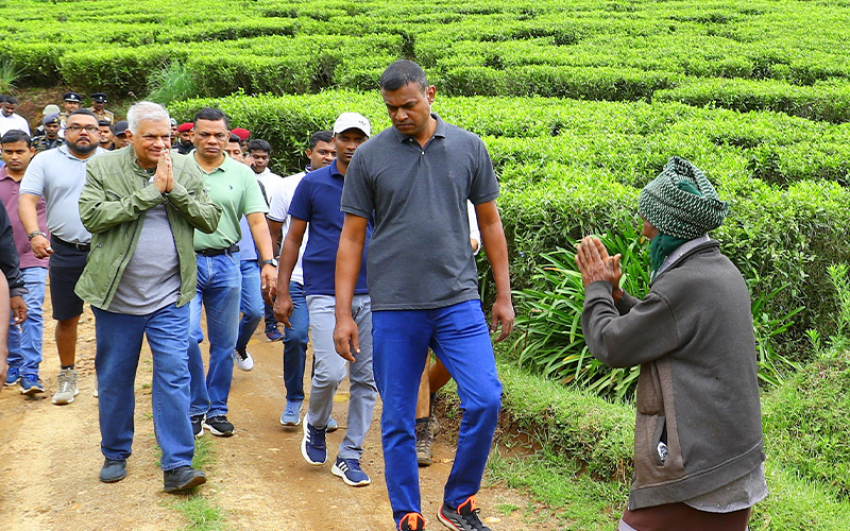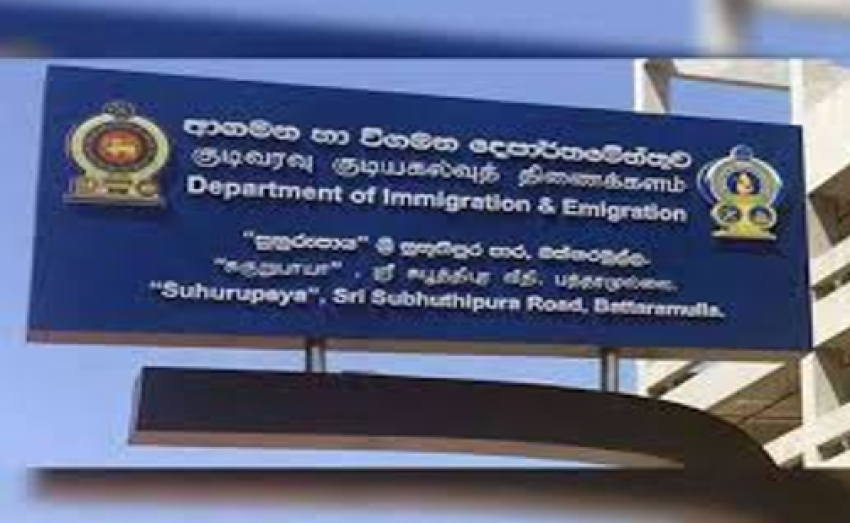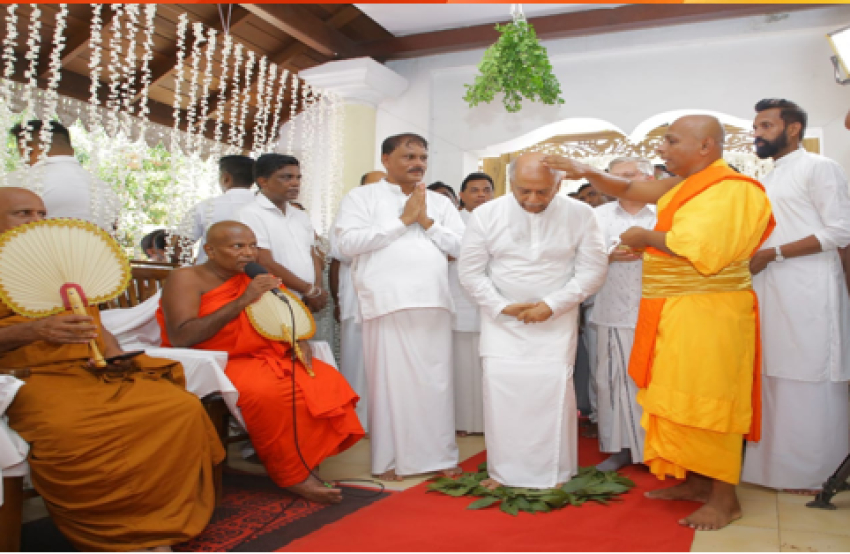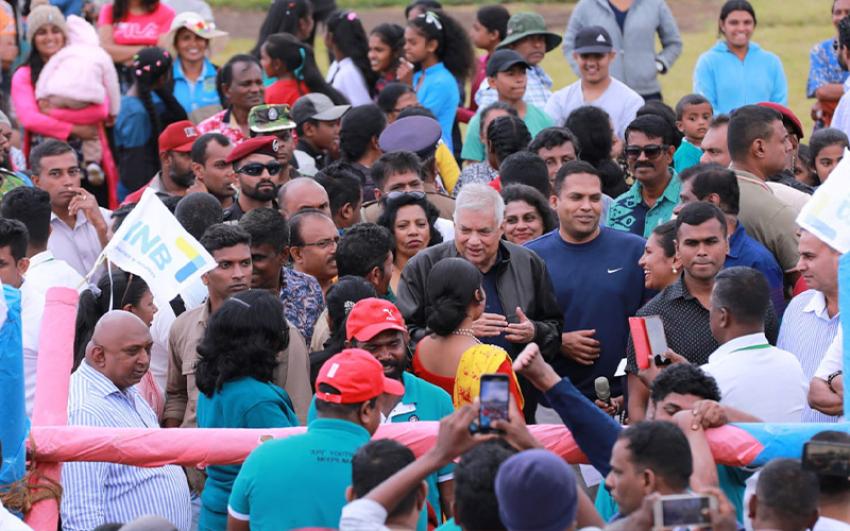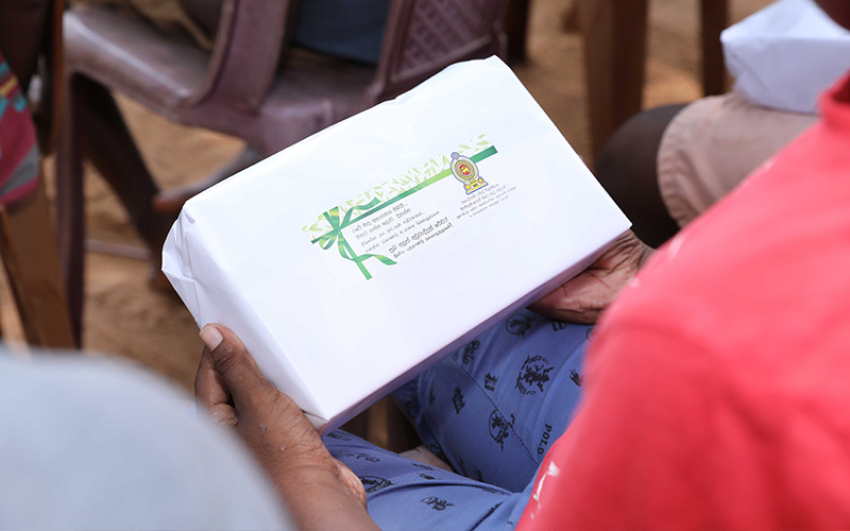The interim report compiled and headed by President’s Counsel Saliya Peiris was handed over to President Maithripala Sirisena and Prime Minister Ranil Wickremesinghe this Wednesday (05th).Recommendations for interim relief as well as securing truth, justice and memorialisation for victims of enforced disappearances were stated in detail in the much anticipated report. In order to gather sufficient information regarding the cases the OMP has held six public meetings across the country—in Mannar, Matara, Mullaitivu, Trincomalee, Jaffna and Killinochchi with a total of 2,147 persons.
The operations of the OMP commenced with the appointment of its commissioners in February this year.It has consulted national and international organisations and experts, and also established key relationships with several government bodies and international organisations in order to secure vital information regarding missing persons.However failure of successive state institutions to provide families with truth, justice and reparations has created a deep distrust of the State and by extension the OMP, it stated.
It also noted ‘with grave concern’ the assaults on Amitha Priyanthi on July 6, 2018 near Aluthgama and on Srishobana Yogalimgam on July 14, 2018 in Vaddukodai, Jaffna by an unidentified group.“Such acts of intimidation or reprisal aimed at complainants, witnesses, relatives of the disappeared person or their defence counsel or persons conducting investigations are a serious threat to justice and undermine public confidence in the State,” the OMP stated.
Meanwhile, it was brought to light that there is a the vital importance of multiple lists of the missing and the disappeared compiled by state agencies, commissions and civil society as at present there is no ‘one accepted statistic for the total number of the missing and the disappeared in Sri Lanka’.
In a more concerning note the OMP revealed that some individuals suspected of having committed enforced disappearances and related offences are being permitted to remain in positions of power—especially within the armed forces and the police—where they can influence the progress of an investigation. There have been instances where members of the armed forces, who were willing to provide information on disappearances, were subject to harassment.
“Legal and institutional reforms must be implemented to prevent enforced disappearances,” the OMP recommends adding, “There are ongoing reports of arbitrary arrests, the mistreatment of detainees as well as torture and deaths in custody”.
Families of the missing and the disappeared have faced multiple forms of harassment - sexual harassment and bribery, where female relatives were asked for sexual favors in exchange for information regarding their missing relatives as well as for the provision of basic administrative services, the Interim Report of the Office on Missing Persons (OMP) reveals.
The interim report compiled and headed by President’s Counsel Saliya Peiris was handed over to President Maithripala Sirisena and Prime Minister Ranil Wickremesinghe this Wednesday (05th).Recommendations for interim relief as well as securing truth, justice and memorialisation for victims of enforced disappearances were stated in detail in the much anticipated report. In order to gather sufficient information regarding the cases the OMP has held six public meetings across the country—in Mannar, Matara, Mullaitivu, Trincomalee, Jaffna and Killinochchi with a total of 2,147 persons.
The operations of the OMP commenced with the appointment of its commissioners in February this year.It has consulted national and international organisations and experts, and also established key relationships with several government bodies and international organisations in order to secure vital information regarding missing persons.However failure of successive state institutions to provide families with truth, justice and reparations has created a deep distrust of the State and by extension the OMP, it stated.
It also noted ‘with grave concern’ the assaults on Amitha Priyanthi on July 6, 2018 near Aluthgama and on Srishobana Yogalimgam on July 14, 2018 in Vaddukodai, Jaffna by an unidentified group.“Such acts of intimidation or reprisal aimed at complainants, witnesses, relatives of the disappeared person or their defence counsel or persons conducting investigations are a serious threat to justice and undermine public confidence in the State,” the OMP stated.
Meanwhile, it was brought to light that there is a the vital importance of multiple lists of the missing and the disappeared compiled by state agencies, commissions and civil society as at present there is no ‘one accepted statistic for the total number of the missing and the disappeared in Sri Lanka’.
In a more concerning note the OMP revealed that some individuals suspected of having committed enforced disappearances and related offences are being permitted to remain in positions of power—especially within the armed forces and the police—where they can influence the progress of an investigation. There have been instances where members of the armed forces, who were willing to provide information on disappearances, were subject to harassment.
“Legal and institutional reforms must be implemented to prevent enforced disappearances,” the OMP recommends adding, “There are ongoing reports of arbitrary arrests, the mistreatment of detainees as well as torture and deaths in custody”.
Families of the missing and the disappeared have faced multiple forms of harassment - sexual harassment and bribery, where female relatives were asked for sexual favors in exchange for information regarding their missing relatives as well as for the provision of basic administrative services, the Interim Report of the Office on Missing Persons (OMP) reveals.
The interim report compiled and headed by President’s Counsel Saliya Peiris was handed over to President Maithripala Sirisena and Prime Minister Ranil Wickremesinghe this Wednesday (05th).Recommendations for interim relief as well as securing truth, justice and memorialisation for victims of enforced disappearances were stated in detail in the much anticipated report. In order to gather sufficient information regarding the cases the OMP has held six public meetings across the country—in Mannar, Matara, Mullaitivu, Trincomalee, Jaffna and Killinochchi with a total of 2,147 persons.
The operations of the OMP commenced with the appointment of its commissioners in February this year.It has consulted national and international organisations and experts, and also established key relationships with several government bodies and international organisations in order to secure vital information regarding missing persons.However failure of successive state institutions to provide families with truth, justice and reparations has created a deep distrust of the State and by extension the OMP, it stated.
It also noted ‘with grave concern’ the assaults on Amitha Priyanthi on July 6, 2018 near Aluthgama and on Srishobana Yogalimgam on July 14, 2018 in Vaddukodai, Jaffna by an unidentified group.“Such acts of intimidation or reprisal aimed at complainants, witnesses, relatives of the disappeared person or their defence counsel or persons conducting investigations are a serious threat to justice and undermine public confidence in the State,” the OMP stated.
Meanwhile, it was brought to light that there is a the vital importance of multiple lists of the missing and the disappeared compiled by state agencies, commissions and civil society as at present there is no ‘one accepted statistic for the total number of the missing and the disappeared in Sri Lanka’.
In a more concerning note the OMP revealed that some individuals suspected of having committed enforced disappearances and related offences are being permitted to remain in positions of power—especially within the armed forces and the police—where they can influence the progress of an investigation. There have been instances where members of the armed forces, who were willing to provide information on disappearances, were subject to harassment.
“Legal and institutional reforms must be implemented to prevent enforced disappearances,” the OMP recommends adding, “There are ongoing reports of arbitrary arrests, the mistreatment of detainees as well as torture and deaths in custody”.
Families of the missing and the disappeared have faced multiple forms of harassment - sexual harassment and bribery, where female relatives were asked for sexual favors in exchange for information regarding their missing relatives as well as for the provision of basic administrative services, the Interim Report of the Office on Missing Persons (OMP) reveals.
The interim report compiled and headed by President’s Counsel Saliya Peiris was handed over to President Maithripala Sirisena and Prime Minister Ranil Wickremesinghe this Wednesday (05th).Recommendations for interim relief as well as securing truth, justice and memorialisation for victims of enforced disappearances were stated in detail in the much anticipated report. In order to gather sufficient information regarding the cases the OMP has held six public meetings across the country—in Mannar, Matara, Mullaitivu, Trincomalee, Jaffna and Killinochchi with a total of 2,147 persons.
The operations of the OMP commenced with the appointment of its commissioners in February this year.It has consulted national and international organisations and experts, and also established key relationships with several government bodies and international organisations in order to secure vital information regarding missing persons.However failure of successive state institutions to provide families with truth, justice and reparations has created a deep distrust of the State and by extension the OMP, it stated.
It also noted ‘with grave concern’ the assaults on Amitha Priyanthi on July 6, 2018 near Aluthgama and on Srishobana Yogalimgam on July 14, 2018 in Vaddukodai, Jaffna by an unidentified group.“Such acts of intimidation or reprisal aimed at complainants, witnesses, relatives of the disappeared person or their defence counsel or persons conducting investigations are a serious threat to justice and undermine public confidence in the State,” the OMP stated.
Meanwhile, it was brought to light that there is a the vital importance of multiple lists of the missing and the disappeared compiled by state agencies, commissions and civil society as at present there is no ‘one accepted statistic for the total number of the missing and the disappeared in Sri Lanka’.
In a more concerning note the OMP revealed that some individuals suspected of having committed enforced disappearances and related offences are being permitted to remain in positions of power—especially within the armed forces and the police—where they can influence the progress of an investigation. There have been instances where members of the armed forces, who were willing to provide information on disappearances, were subject to harassment.
“Legal and institutional reforms must be implemented to prevent enforced disappearances,” the OMP recommends adding, “There are ongoing reports of arbitrary arrests, the mistreatment of detainees as well as torture and deaths in custody”.
Families of the missing and the disappeared have faced multiple forms of harassment - sexual harassment and bribery, where female relatives were asked for sexual favors in exchange for information regarding their missing relatives as well as for the provision of basic administrative services, the Interim Report of the Office on Missing Persons (OMP) reveals.
The interim report compiled and headed by President’s Counsel Saliya Peiris was handed over to President Maithripala Sirisena and Prime Minister Ranil Wickremesinghe this Wednesday (05th).Recommendations for interim relief as well as securing truth, justice and memorialisation for victims of enforced disappearances were stated in detail in the much anticipated report. In order to gather sufficient information regarding the cases the OMP has held six public meetings across the country—in Mannar, Matara, Mullaitivu, Trincomalee, Jaffna and Killinochchi with a total of 2,147 persons.
The operations of the OMP commenced with the appointment of its commissioners in February this year.It has consulted national and international organisations and experts, and also established key relationships with several government bodies and international organisations in order to secure vital information regarding missing persons.However failure of successive state institutions to provide families with truth, justice and reparations has created a deep distrust of the State and by extension the OMP, it stated.
It also noted ‘with grave concern’ the assaults on Amitha Priyanthi on July 6, 2018 near Aluthgama and on Srishobana Yogalimgam on July 14, 2018 in Vaddukodai, Jaffna by an unidentified group.“Such acts of intimidation or reprisal aimed at complainants, witnesses, relatives of the disappeared person or their defence counsel or persons conducting investigations are a serious threat to justice and undermine public confidence in the State,” the OMP stated.
Meanwhile, it was brought to light that there is a the vital importance of multiple lists of the missing and the disappeared compiled by state agencies, commissions and civil society as at present there is no ‘one accepted statistic for the total number of the missing and the disappeared in Sri Lanka’.
In a more concerning note the OMP revealed that some individuals suspected of having committed enforced disappearances and related offences are being permitted to remain in positions of power—especially within the armed forces and the police—where they can influence the progress of an investigation. There have been instances where members of the armed forces, who were willing to provide information on disappearances, were subject to harassment.
“Legal and institutional reforms must be implemented to prevent enforced disappearances,” the OMP recommends adding, “There are ongoing reports of arbitrary arrests, the mistreatment of detainees as well as torture and deaths in custody”.
Families of the missing and the disappeared have faced multiple forms of harassment - sexual harassment and bribery, where female relatives were asked for sexual favors in exchange for information regarding their missing relatives as well as for the provision of basic administrative services, the Interim Report of the Office on Missing Persons (OMP) reveals.
The interim report compiled and headed by President’s Counsel Saliya Peiris was handed over to President Maithripala Sirisena and Prime Minister Ranil Wickremesinghe this Wednesday (05th).Recommendations for interim relief as well as securing truth, justice and memorialisation for victims of enforced disappearances were stated in detail in the much anticipated report. In order to gather sufficient information regarding the cases the OMP has held six public meetings across the country—in Mannar, Matara, Mullaitivu, Trincomalee, Jaffna and Killinochchi with a total of 2,147 persons.
The operations of the OMP commenced with the appointment of its commissioners in February this year.It has consulted national and international organisations and experts, and also established key relationships with several government bodies and international organisations in order to secure vital information regarding missing persons.However failure of successive state institutions to provide families with truth, justice and reparations has created a deep distrust of the State and by extension the OMP, it stated.
It also noted ‘with grave concern’ the assaults on Amitha Priyanthi on July 6, 2018 near Aluthgama and on Srishobana Yogalimgam on July 14, 2018 in Vaddukodai, Jaffna by an unidentified group.“Such acts of intimidation or reprisal aimed at complainants, witnesses, relatives of the disappeared person or their defence counsel or persons conducting investigations are a serious threat to justice and undermine public confidence in the State,” the OMP stated.
Meanwhile, it was brought to light that there is a the vital importance of multiple lists of the missing and the disappeared compiled by state agencies, commissions and civil society as at present there is no ‘one accepted statistic for the total number of the missing and the disappeared in Sri Lanka’.
In a more concerning note the OMP revealed that some individuals suspected of having committed enforced disappearances and related offences are being permitted to remain in positions of power—especially within the armed forces and the police—where they can influence the progress of an investigation. There have been instances where members of the armed forces, who were willing to provide information on disappearances, were subject to harassment.
“Legal and institutional reforms must be implemented to prevent enforced disappearances,” the OMP recommends adding, “There are ongoing reports of arbitrary arrests, the mistreatment of detainees as well as torture and deaths in custody”.
Families of the missing and the disappeared have faced multiple forms of harassment - sexual harassment and bribery, where female relatives were asked for sexual favors in exchange for information regarding their missing relatives as well as for the provision of basic administrative services, the Interim Report of the Office on Missing Persons (OMP) reveals.
The interim report compiled and headed by President’s Counsel Saliya Peiris was handed over to President Maithripala Sirisena and Prime Minister Ranil Wickremesinghe this Wednesday (05th).Recommendations for interim relief as well as securing truth, justice and memorialisation for victims of enforced disappearances were stated in detail in the much anticipated report. In order to gather sufficient information regarding the cases the OMP has held six public meetings across the country—in Mannar, Matara, Mullaitivu, Trincomalee, Jaffna and Killinochchi with a total of 2,147 persons.
The operations of the OMP commenced with the appointment of its commissioners in February this year.It has consulted national and international organisations and experts, and also established key relationships with several government bodies and international organisations in order to secure vital information regarding missing persons.However failure of successive state institutions to provide families with truth, justice and reparations has created a deep distrust of the State and by extension the OMP, it stated.
It also noted ‘with grave concern’ the assaults on Amitha Priyanthi on July 6, 2018 near Aluthgama and on Srishobana Yogalimgam on July 14, 2018 in Vaddukodai, Jaffna by an unidentified group.“Such acts of intimidation or reprisal aimed at complainants, witnesses, relatives of the disappeared person or their defence counsel or persons conducting investigations are a serious threat to justice and undermine public confidence in the State,” the OMP stated.
Meanwhile, it was brought to light that there is a the vital importance of multiple lists of the missing and the disappeared compiled by state agencies, commissions and civil society as at present there is no ‘one accepted statistic for the total number of the missing and the disappeared in Sri Lanka’.
In a more concerning note the OMP revealed that some individuals suspected of having committed enforced disappearances and related offences are being permitted to remain in positions of power—especially within the armed forces and the police—where they can influence the progress of an investigation. There have been instances where members of the armed forces, who were willing to provide information on disappearances, were subject to harassment.
“Legal and institutional reforms must be implemented to prevent enforced disappearances,” the OMP recommends adding, “There are ongoing reports of arbitrary arrests, the mistreatment of detainees as well as torture and deaths in custody”.
Families of the missing and the disappeared have faced multiple forms of harassment - sexual harassment and bribery, where female relatives were asked for sexual favors in exchange for information regarding their missing relatives as well as for the provision of basic administrative services, the Interim Report of the Office on Missing Persons (OMP) reveals.
The interim report compiled and headed by President’s Counsel Saliya Peiris was handed over to President Maithripala Sirisena and Prime Minister Ranil Wickremesinghe this Wednesday (05th).Recommendations for interim relief as well as securing truth, justice and memorialisation for victims of enforced disappearances were stated in detail in the much anticipated report. In order to gather sufficient information regarding the cases the OMP has held six public meetings across the country—in Mannar, Matara, Mullaitivu, Trincomalee, Jaffna and Killinochchi with a total of 2,147 persons.
The operations of the OMP commenced with the appointment of its commissioners in February this year.It has consulted national and international organisations and experts, and also established key relationships with several government bodies and international organisations in order to secure vital information regarding missing persons.However failure of successive state institutions to provide families with truth, justice and reparations has created a deep distrust of the State and by extension the OMP, it stated.
It also noted ‘with grave concern’ the assaults on Amitha Priyanthi on July 6, 2018 near Aluthgama and on Srishobana Yogalimgam on July 14, 2018 in Vaddukodai, Jaffna by an unidentified group.“Such acts of intimidation or reprisal aimed at complainants, witnesses, relatives of the disappeared person or their defence counsel or persons conducting investigations are a serious threat to justice and undermine public confidence in the State,” the OMP stated.
Meanwhile, it was brought to light that there is a the vital importance of multiple lists of the missing and the disappeared compiled by state agencies, commissions and civil society as at present there is no ‘one accepted statistic for the total number of the missing and the disappeared in Sri Lanka’.
In a more concerning note the OMP revealed that some individuals suspected of having committed enforced disappearances and related offences are being permitted to remain in positions of power—especially within the armed forces and the police—where they can influence the progress of an investigation. There have been instances where members of the armed forces, who were willing to provide information on disappearances, were subject to harassment.
“Legal and institutional reforms must be implemented to prevent enforced disappearances,” the OMP recommends adding, “There are ongoing reports of arbitrary arrests, the mistreatment of detainees as well as torture and deaths in custody”.
It further recommends providing affected families with urgent and immediate relief as the current socio-economic situation of many families of the missing and the disappeared is dire and cannot wait until a final reparations scheme is devised.
Investigation and prosecution of enforced disappearances is of vital importance, the OMP points out stating that these are not merely crimes of the past but are of a continuing nature until the fate of the missing or their whereabouts are clarified. And it is urgent for the State to ensure an adequate legal framework and empower relevant state actors to discharge their functions to ensure prompt and effective investigations and prosecutions.
It recommends the government to make immediate policy formulation and implementations such as a financial aid programme to provide living family members of the disappeared, who have no source of income, a monthly living allowance of Rs. 6000, while also introducing a debt relief programme aimed at writing off debt (example microfinance loans) valued at or below an amount determined by the Ministry of Finance, or financial aid programmes and loan schemes such as ‘Enterprise Sri Lanka’ of the Ministry of Finance, aimed at achieving economic stability and self-reliance.
Other recommendations include providing families of missing or disappeared persons with a housing development programme, educational support programme where children will be given a monthly allowance of Rs. 2000, a vocational training and livelihood development programme, and introduction of an employment quota of one per cent within the state sector in order to facilitate family members with requisite skills, when vacancies in the public and semi-governmental sectors are being filled.
In recognition of the long-term pain and suffering of families of the missing and the disappeared, as well as the need for the people of Sri Lanka to recognise that many thousands of people belonging to all communities have disappeared over several decades, the OMP recommends the prompt implementation of a National Day for the Disappeared, restoration of ‘Ahinsakaramaya’ – Memorial for the Innocents - in Battaramulla in a manner that reflects the views of the public as well as the families of the missing and the disappeared and following excavations, preserve mass grave sites as memorial spaces.

